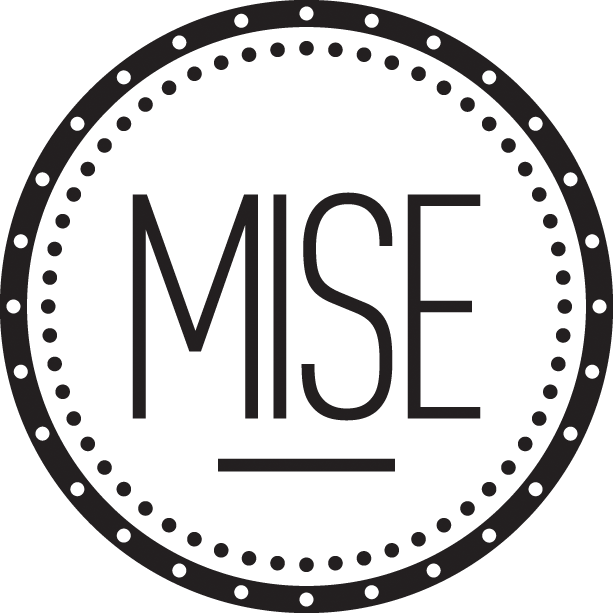interview
5.1.15 | Issue #16
Silas Hite just had lunch from a taco truck, and is waiting on piano movers.
Almost immediately after he finished scoring David Gelb's Netflix-sanctioned soft-core-food-porn extravaganza Chef's Table—which, if we're being real here, is crazy awesome and will make you feel some serious feels—Hite closed on a new house in Los Angeles. We're bothering him in the middle of the generally hellish moving process because he is the architect of some of the most moving musical portraits of kitchens at work, ever.
The stress is there, and so is the exaltation, the excitement and the poetry, the suspense; every single complicated emotion held by those who cook professionally rises off the screen and transforms into something epic, thanks in large part to this badass composer.
And, since you asked, yes, he did sketch that self-portrait up there. And yes, this is really a coolness-by-osmosis kind of thing.
How is the creative process structured for this kind of gig?
It was purely based off the visuals and conversations I had with the directors. I was brought in by Brian McGinn, who I’ve worked with on quite a few projects—everything from a wonderful short film called The Recordbreaker a few years ago, to Funny or Die stuff. But he had teamed up with David Gelb for this, who really likes classical music and pieces. I told Brian that was right up my alley.
A lot of the music in the show was temped with classical pieces, many of which wound up making it into the final show. So for me, the creative process was seeing the edits of all that gorgeous footage of these dishes, these works of art. These people’s lives are works of art, even. I knew my music had to blend in with the orchestral, symphonic type stuff, but the directors weren’t really adamant that it had to. I got to blend some modern touches in and bring some other things to it so it didn’t feel too traditional. I knew I would have a budget for some live string players, which in today’s world is getting rarer and rarer for composers to have. So after a bit of exploring, and knowing I’d be using live strings, I wrote to that end.
why is scoring a kitchen different from most other settings?
There are some similarities, in that I’ll watch a scene and think, oh, this needs energy, or tension. But I think what makes it different from say, scoring an action film, is that what we’re seeing on screen is actual creation. The music needs to be as interesting as the visuals, and what they’re creating, without distracting from it. I feel like there’s more of an artistic responsibility to be more creative. It is different. I really relished that challenge. No pun intended! Oh man, that was awful. No, but I did feel like because these people are obviously top creators, I had to bring my best to it. I know it sounds cliche and everyone says it, but it was true.
Ben Shewry in the Attica episode | Chef's Table, Netflix
Were certain stories harder to score than others?
The most challenging thing was actually that the overall pace of what we had to do kept increasing as it went on. The first episode that I scored was the Attica episode, and I wrote the most music for that. I probably wrote as much that didn’t make it in as well, simply because we had more time. I was writing out a ton of different ideas and giving them to Brian and the editors to play with. As the episodes went on, the pace was too hectic, and they even brought in more composers to help because some of them had to be scored at the exact same time. The deadlines kept getting axed for everyone. With T.V., the schedules are always insane, and music—no matter if it’s television or film—usually happens last. The schedule is always breakneck, but this one was accelerated over and over.
Do you need that panic to work?
I’m used to having deadlines, but I can work either way. If I have more time, I can explore more ideas that might be outside-the-box, but potentially more interesting ways to approach something musically. If I have a week instead of a day, I might write three pieces of music for the same scene. They all work, but achieve something differently. If I have one day, then I’ll just put together a Best Of cue. The more time you get to explore, the better chance you have to happen upon something cool.
Photos by David Broach
How does it feel for you when something clicks?
All I can say is that it’s concrete satisfaction. When it all comes together like that, and I know I’ve nailed it? It’s the happiest I ever am, probably. It’s confidence, and assurance, and happiness all together.
When you're out in the world...
There’s always music going on in my head. In the old days, I had a tape recorder, but now I sing melodies into my phone during the day. Sometimes I’ll just verbalize the ideas and describe it in words rather than melody. I learned a long time ago that ideas are only in your head for a second, and then they’re gone. I don’t always revisit them, but I do feel like they're always burbling around.
During this time in particular, since it was such a classically based palette, I was listening to a lot of classical music they had given me, and going back through my own collection. I also like to listen to stuff that’s completely different from stuff I’m working on to clear my brain. It influences me to come at it in a different way. So maybe there’s some Lord Huron in there, or Eazy-E. Completely different. And ideas will flow from that.






